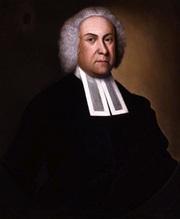Planning worship?
Check out our sister site, ZeteoSearch.org,
for 20+ additional resources related to your search.
- |
User Links
Search Results
Feasting on CHRIST at his Table
Appears in 6 hymnals First Line: How glorious is this holy Place Lyrics: 1 How glorious is this holy Place,
Where Bread of Life is giv'n!
This surely is the House of God!
This is the Gate of Heav'n!
Jesus, the master of the Feast,
vouchsafes his Presence here;
The cup of Blessing passes round,
The pious Guests to chear.
2 Hence faithless Doubts, desponding Fears,
No more our Joys molest:
Hence all vain Thoughts, and vile Desires
No more our Souls infest.
Can Sinners doubt their pardon, when
their Judge upon them smiles?
Can they ungratefully rebel,
Whom Jesus reconciles?
3 The Merit of his Blood can calm
The soul with Guilt opprest;
The Torments of his Cross can make
The Soul all sin detest.
O may our Sins, that made thee bleed,
All on thy Cross expire!
O may the Joys, thy Banquet gives,
Equal our warm Desire!
4 So shall we mount upon the Wings
Of chearful Hope and Love;
And here begin the songs that we
Shall better sing above.
Feasting on CHRIST at his Table
How glorious is this holy place
Hymnal: Hymns for the Lords Supper #XXIII (1821)
How glorious is this holy place
How glorious is this holy place
Author: Thomas Prince Hymnal: Hymns for the Lord's Supper #d11 (1820) Languages: English
How glorious is this holy place
How glorious is this holy place
Author: Thomas Prince Hymnal: Hymns and Spiritual Songs #d38 (1766)
How glorious is this holy place
Thomas Prince

1686 - 1758 Author of "How glorious is this holy place" Prince, Thomas. An American versifier, b. in 1686, educated at Harvard College, and for some time Minister of South Church, Boston. He died in Oct., 1758.
--John Julian, Dictionary of Hymnology (1907)
============================
Prince, Rev. Thomas, D.D. (Sandwich, Massachusetts, May 15, 1687--October 22, 1758, Boston, Mass.). He graduated from Harvard in 1707. After voyages to Barbados and a stay of several years in England he returned to Boston and in 1717 was ordained as colleague of Rev. Joseph Sewall, minister of the Old South Church. His career was marked by frequent controversies and by his Chronological History of New England, based on his great collection of rare documents dating from the early years of the Colony. This priceless collection was unfortunately dispersed and much of it lost after his death. During his ministry the Tate and Brady version of the Psalms was gradually replacing the Bay Psalm Book in New England, but his parishioners clung to the old book. He persuaded them to let him revise it, which he did, improving or modernizing the verse and printing after the Psalms "an addition of Fifty other Hymns on the most important subjects of Christianity." It included one hymn by himself beginning "With Christ and all his shining Train Of Saints and Angels, we shall rise." His collection was published in 1758 and was first used in the Old South Meeting House on the Sunday following his death. Its use there continued there for another 30 years, but it was not adopted elsewhere, the Bay Psalm Book being by that time generally superseded by collections of Watts and Select.
--Henry Wilder Foote, DNAH Archives
Thomas Prince


 My Starred Hymns
My Starred Hymns

